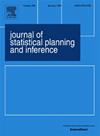线性回归模型中前向梯度下降的收敛保证
IF 0.8
4区 数学
Q3 STATISTICS & PROBABILITY
引用次数: 0
摘要
人们对人工神经网络和生物神经网络之间关系的兴趣再次激发了对无梯度方法的研究。考虑到随机设计的线性回归模型,我们在本研究中从理论上分析了基于梯度随机线性组合的生物(权重扰动)前向梯度方案。如果 d 表示参数个数,k 表示样本个数,我们证明这种方法的均方误差在 k≳d2log(d) 条件下以 d2log(d)/k 的速率收敛。与随机梯度下降法的维度依赖性 d 相比,多了一个系数 dlog(d)。本文章由计算机程序翻译,如有差异,请以英文原文为准。
Convergence guarantees for forward gradient descent in the linear regression model
Renewed interest in the relationship between artificial and biological neural networks motivates the study of gradient-free methods. Considering the linear regression model with random design, we theoretically analyze in this work the biologically motivated (weight-perturbed) forward gradient scheme that is based on random linear combination of the gradient. If denotes the number of parameters and the number of samples, we prove that the mean squared error of this method converges for with rate . Compared to the dimension dependence for stochastic gradient descent, an additional factor occurs.
求助全文
通过发布文献求助,成功后即可免费获取论文全文。
去求助
来源期刊
CiteScore
2.10
自引率
11.10%
发文量
78
审稿时长
3-6 weeks
期刊介绍:
The Journal of Statistical Planning and Inference offers itself as a multifaceted and all-inclusive bridge between classical aspects of statistics and probability, and the emerging interdisciplinary aspects that have a potential of revolutionizing the subject. While we maintain our traditional strength in statistical inference, design, classical probability, and large sample methods, we also have a far more inclusive and broadened scope to keep up with the new problems that confront us as statisticians, mathematicians, and scientists.
We publish high quality articles in all branches of statistics, probability, discrete mathematics, machine learning, and bioinformatics. We also especially welcome well written and up to date review articles on fundamental themes of statistics, probability, machine learning, and general biostatistics. Thoughtful letters to the editors, interesting problems in need of a solution, and short notes carrying an element of elegance or beauty are equally welcome.

 求助内容:
求助内容: 应助结果提醒方式:
应助结果提醒方式:


